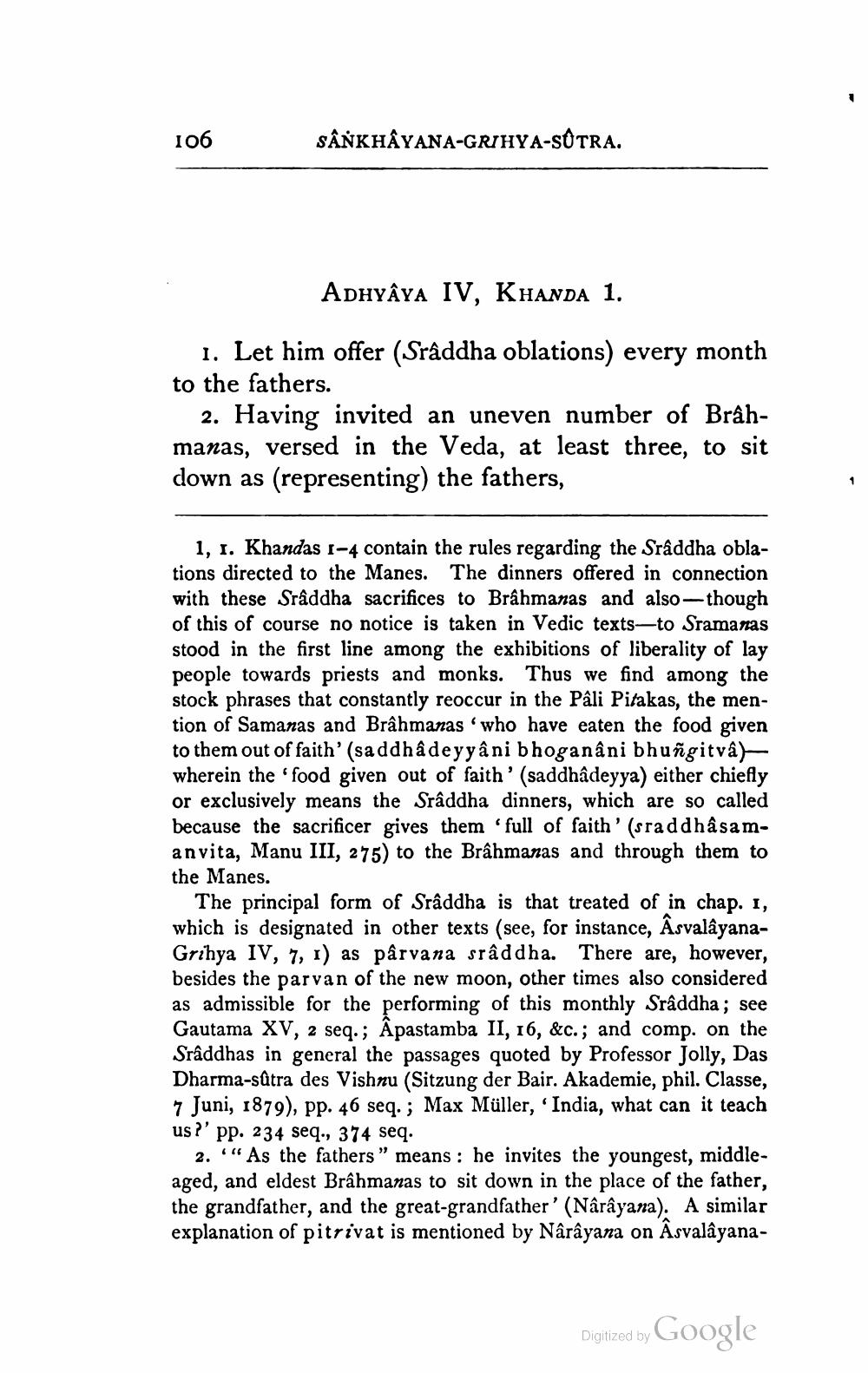________________
106
SÂNKHẢYANA-GRIHYA-SÚTRA.
Adhyâya IV, KHANDA 1.
1. Let him offer (Sraddha oblations) every month to the fathers.
2. Having invited an uneven number of Brâhmanas, versed in the Veda, at least three, to sit down as (representing) the fathers,
1. 1. Khandas 1-4 contain the rules regarding the Sraddha oblations directed to the Manes. The dinners offered in connection with these Sraddha sacrifices to Brâhmanas and also though of this of course no notice is taken in Vedic texts—to Sramanas stood in the first line among the exhibitions of liberality of lay people towards priests and monks. Thus we find among the stock phrases that constantly reoccur in the Pali Pitakas, the mention of Samanas and Brâhmanas 'who have eaten the food given to them out of faith' (saddhâdeyyâni bhoganâni bhuñgitva) wherein the 'food given out of faith' (saddhâdeyya) either chiefly or exclusively means the Sraddha dinners, which are so called because the sacrificer gives them full of faith' (sraddha saman vita, Manu III, 275) to the Brâhmanas and through them to the Manes.
The principal form of Sraddha is that treated of in chap. 1, which is designated in other texts (see, for instance, ÂsvalâyanaGrihya IV, 7, 1) as pârvana srâddha. There are, however, besides the parvan of the new moon, other times also considered as admissible for the performing of this monthly Sraddha; see Gautama XV, 2 seq.; Âpastamba II, 16, &c.; and comp. on the Sraddhas in general the passages quoted by Professor Jolly, Das Dharma-sûtra des Vishnu (Sitzung der Bair. Akademie, phil. Classe, 7 Juni, 1879), pp. 46 seq.; Max Müller, 'India, what can it teach us?' pp. 234 seq., 374 seq.
2. ""As the fathers" means : he invites the youngest, middleaged, and eldest Brâhmanas to sit down in the place of the father, the grandfather, and the great-grandfather' (Narayana). A similar explanation of pitrivat is mentioned by Nârâyana on Asvalâyana
Digitized by Google




